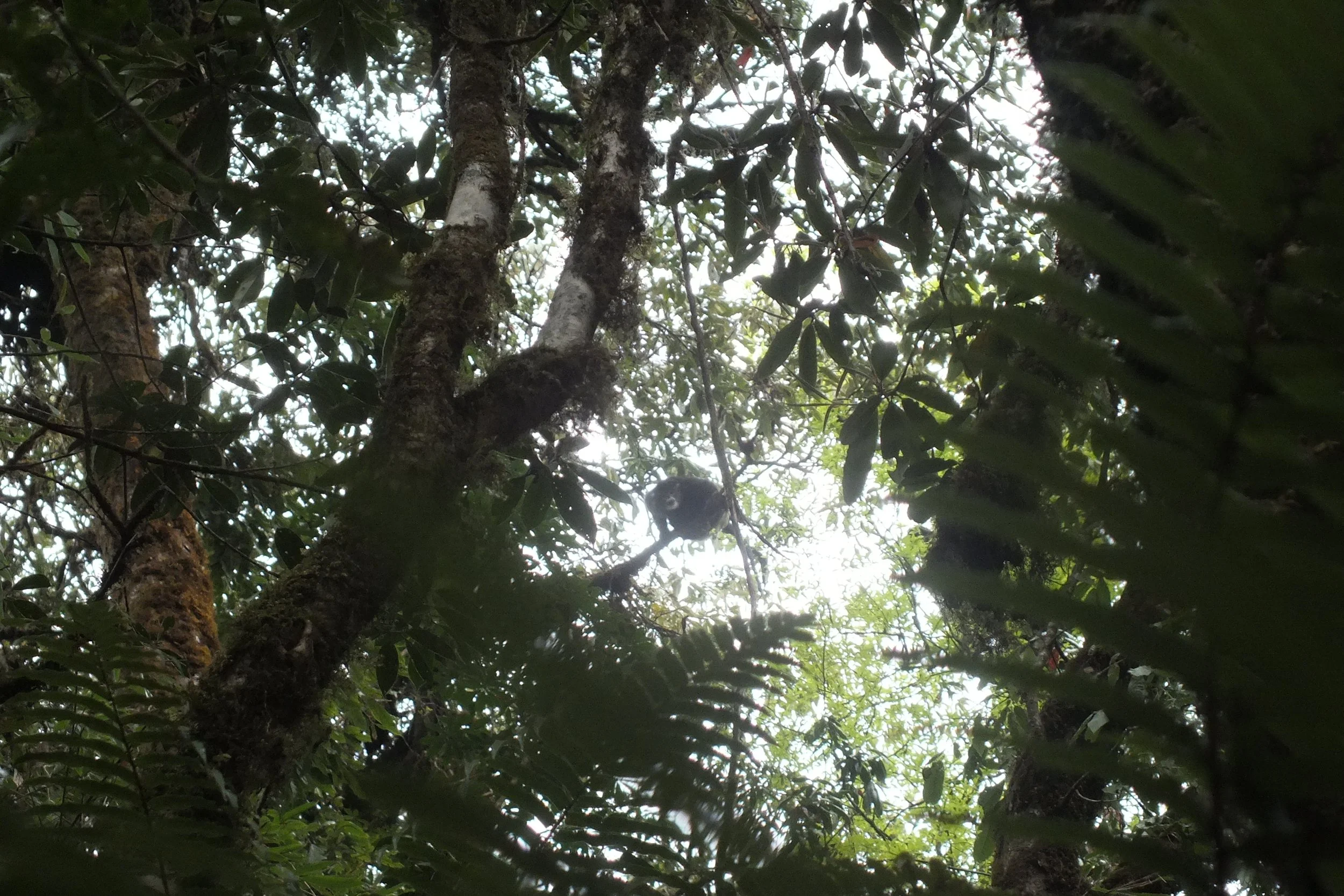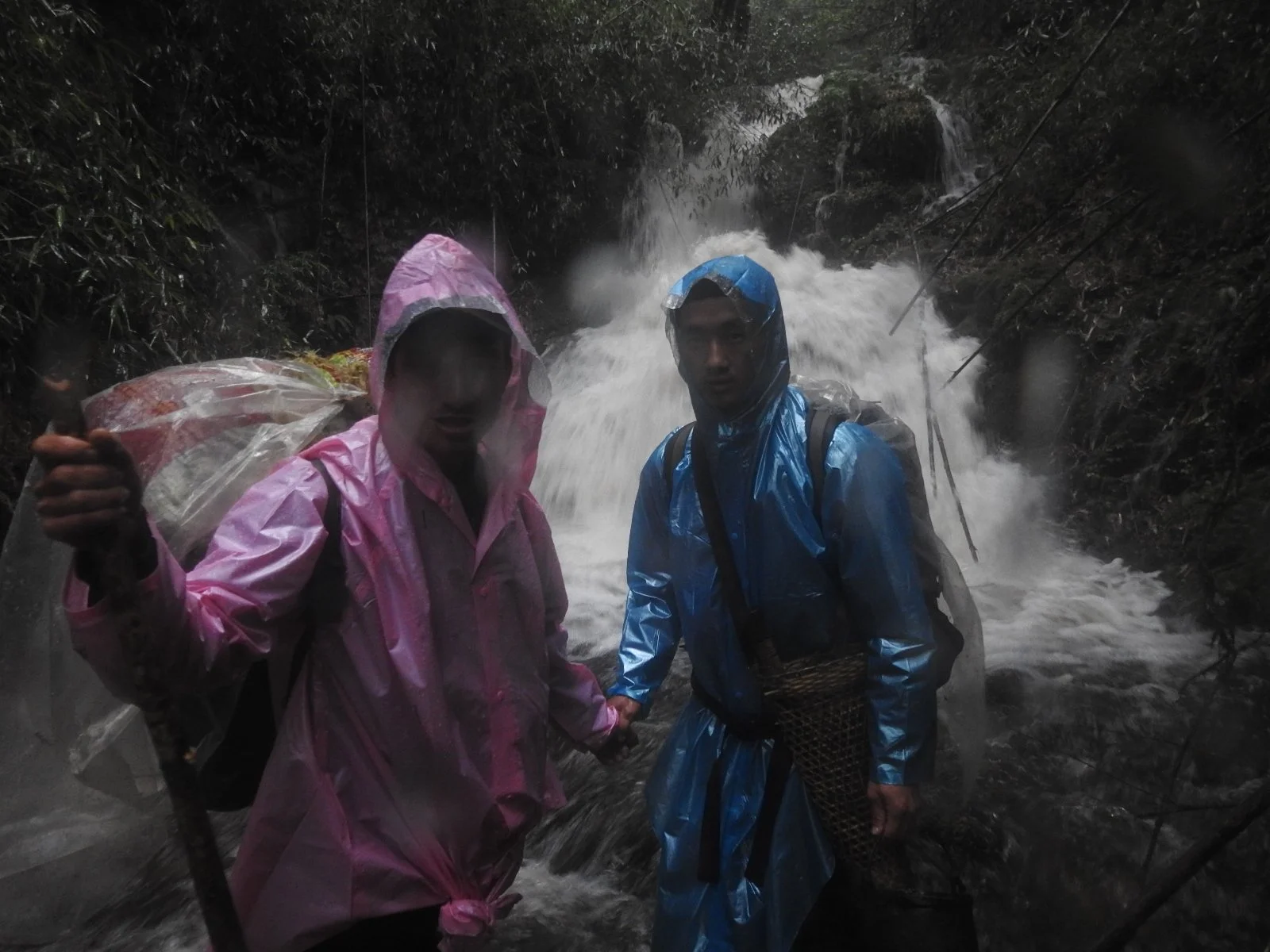Community Patrols Help Protect Myanmar Snub-Nosed Monkey
1 September 2025
This International Primate Day, we spotlight the team behind Fauna & Flora who braved through harsh and remote conditions to protect the Critically Endangered Myanmar Snub-nosed Monkey. With support from the ASAP Species Conservation Fund, their patrols covered more than 650 km. They also confirmed two groups of this rare primate, with local community members playing a key role in the project’s success.
High in the misty mountains along the Myanmar–China border lives one of the world’s rarest primates – the Myanmar Snub-nosed Monkey. Only discovered in 2010 by a team from Fauna & Flora Myanmar led by Ngwe Lwin, this striking species quickly captured global attention. Shortly after, it was assessed and listed as Critically Endangered by the IUCN Red List of Species.
Like many other threatened species that share its habitat, Myanmar Snub-nosed Monkey faces growing threats from deforestation and hunting. Poachers can locate the monkeys by the distinctive sneezing sounds they make during rainstorms – a quirk of the species that sadly puts them at greater risk.
Myanmar Snub-nosed Monkey (C) FFI
Alleviating hunting pressure through community patrols
FFI has worked with local village conservation groups for more than a decade to implement community-based conservation in the region. Despite these efforts, transboundary hunting remained a persistent threat. To address this, Ngwe Lwin and his team introduced community patrols in 2023 to deter illegal activities. Over the course of eight months, the patrols covered more than 650 km and recorded six sightings of the species. These confirmed the presence of two distinct groups, one with 45 individuals and the other with 30.
Myanmar Snub-nosed Money spotted during patrol (C) FFI
Overcoming challenges in remote landscapes
The project was not without its challenges. The patrol sites are remote and steep with weak mobile services. Patrol staff navigated through harsh conditions and rugged terrain with little communication with each other. The team had to ensure that careful planning, preparation and training was done in advance before each patrol.
Ngwe Lwin spoke about how the participation of community members helped with the success of the patrols. “Their deep knowledge of the landscape and wildlife has improved species identification and threat detection.”
Community patrol team (C) FFI
Alongside the patrols, the team also delivered conservation awareness training for youths across five villages. These youths then shared what they learned with their wider communities, helping to spread awareness and strengthen local conservation action.
Looking ahead
Ngwe Lwin and his team plan to increase patrol coverage in high-risk areas where snares are most often found. They also hope to engage hunters directly to reduce hunting pressures and explore sustainable financing mechanisms to support patrols in the long term.
“The ASAP funding has allowed us to strengthen capacity of community patrol team members and to operate regular patrol for the protection of Critically Endangered Myanmar Snub-nosed Monkey and other ASAP Species.”
We’re proud to support Ngwe Lwin and FFI through our Species Conservation Fund. If you’re working to save species on the brink, explore how our grants can support your efforts and strengthen conservation where it’s needed most. https://www.speciesonthebrink.org/apply-for-funding




